Diesel generators still hold a prestigious spot as a reliable and efficient power-generation solution, requested by industrial sectors, businesses, and even in turnkey home units. China has classified itself as one of the world’s leading producers of high-quality power equipment, providing advanced and cost-effective solutions to meet diverse needs. This blog post examines China’s diesel generators, highlighting their innovative characteristics, key benefits, and the factors driving their growing global popularity. Whether you are an industry professional, a business owner seeking reliable power options, or simply interested in the technology, this article will equip you with valuable insights to aid in your journey towards understanding and informed decision-making. Gear yourself up for a fun ride into how Chinese diesel generators are shaping the future of power equipment!
Types of Generators Available in China
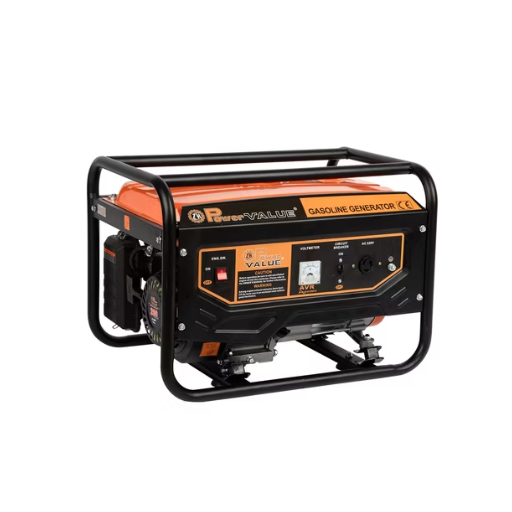
In China, a wide variety of generators exists to fulfill various needs. The commonly used types are:
- Diesel Generators: Renowned for their durability and efficiency, diesel generators are utilized in various sectors, including industrial, commercial, and residential. They can provide reliable power for short durations and long durations, depending on the requirement.
- Gasoline Generators: Lightweight and portable, they are best suited for small-scale activities, such as backup power at home or camping.
- Natural Gas Generators: This option is cleaner and greener, making it more suitable for areas where natural gas is readily available, as it provides clean energy with minimal emissions.
- Solar Generators: Using solar renewable energy, they are suitable for off-grid applications and minimize environmental impact.
- Hybrid Generators: These generators combine two or more energy sources, such as diesel and solar, to efficiently and flexibly fulfill various power demands.
Diesel Generators
Diesel generators are widely used in industrial and residential applications due to their reliability and efficient operation. They convert diesel fuel into electrical energy, making them the equipment used for backup generation when there is an intermittent power supply or a continuous need for energy. New technology enables these modern types of diesel generators to reduce noise and gas emissions, ensuring they meet environmental standards. These machines are also known for being sturdy and for having low operating costs compared to other types of generators. For power requirements that are heavy and of long duration, these qualities above make diesel generators the go-to solution.
Gasoline Generators
Gasoline generators are the most common system for use in portable applications and as a source of emergency power. These generators run on gasoline that is easily found everywhere. These generators are lightweight and compact, making them suitable for scenarios that require mobility, such as camping, outdoor shows, or temporary construction sites. Fuel-wise, gasoline generators tend to be more expensive than diesel generators and may not be very fuel-efficient for extended periods of operation. Modern gasoline generators are built with safety features and the latest technologies that enhance performance and minimize harmful emissions. They are most suitable for the power needs of short duration and home use, where convenience and portability take precedence.
Natural Gas Generators
Generators are now commonly operated in favor of natural gas for both residential and commercial use, given their efficiency and the environmental benefits they offer. These are generators that operate on a fairly clean-burning fuel, such as natural gas, when compared to gasoline or diesel. Connected to existing natural gas lines, they ensure a continuous fuel supply, eliminating the need for frequent refilling. They are preferred during power outages because they do not require regular refilling. Furthermore, natural gas generators produce fewer greenhouse gases, making them more environmentally friendly. Modern-day natural gas generators are designed with quiet operation in mind and a minimal maintenance regimen, thereby providing an excellent solution for the practical implementation of green energy needs.
Inverter Generators
Conceived as a modern power solution, inverter generators offer clean, reliable power with high efficiency. In contrast to conventional generators, inverter generators produce AC power, convert it to DC, and then invert it back into clean AC. This ensures a fixed voltage output accepted worldwide, making them ideal for sensitive electronic devices such as laptops, mobile phones, and medical equipment. Known for being lightweight and compact, the units are easily portable and can be carried to campsites, tailgates, or wherever power is needed. The quiet operation was also a foremost design consideration for inverter generators. Being fuel-efficient and producing fewer emissions, inverter generators are a great green choice, aligning with sustainable energy practices. The plethora of modern features inherent in inverter generators, along with their versatility for various applications, makes them the preferred choice for both recreational and emergency purposes.
Analysis of China’s Generator Market Trends
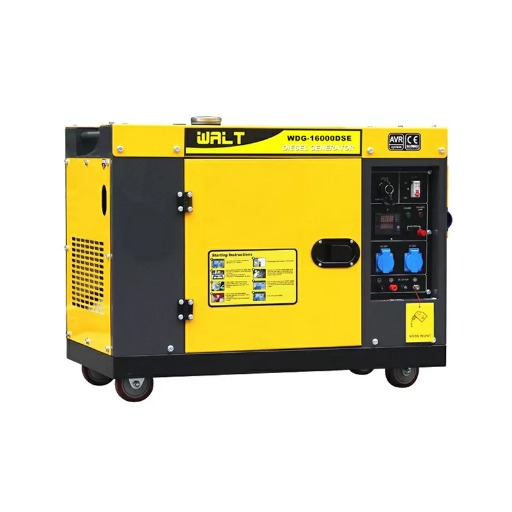
With industrialization and urbanization on the rise, and a parallel need for genuine power solutions, the generator market in China’s deregulated economy has experienced significant growth. The trending thoughts in the generator market center on energy-efficient and pollution-free operations, aligning with the country’s sustainability goals. In contrast, there are still points in favor of inverter generators due to their compact designs and lower emissions. Furthermore, with the growing development of infrastructure and the increasing frequency of natural disasters, the demand for generators for both residential and industrial use remains evident. Policymakers have been encouraging innovation and green technologies, which will give impetus to the advanced generator solutions in the coming years.
Market Growth and Projections
A combination of unprecedented advances in technology and shifting consumer preferences is likely to drive tremendous growth in the generator market. Recent data suggest a thriving annual growth rate of around 5% over the next decade, driven by enhanced investments in renewable energy integration and backup power systems. Search trends for consumer-oriented information on environmentally friendly and energy-efficient generators indicate that awareness is directly linked to global sustainability concerns. The industrial sector is projected to account for the majority of the market share, while the residential segment is expected to continue growing due to urbanization and increasing electricity demand. Such a forecast invokes hope in the generator industry as global forces shift toward sustainable energy alternatives.
Technological Advancements in Generators
Generator technology has undergone numerous changes worldwide in recent years, evolving in terms of efficiency, sustainability, and user-friendliness. One of the breakthroughs comprises hybrid generators that combine conventional fuel generation methods with renewables, such as solar or wind energy. This design helps reduce carbon dioxide emissions and has lower operational costs in the long run. Additionally, smart generators are gaining popularity, equipped with IoT facilities that enable real-time monitoring, predictive maintenance, and remote operations through a mobile app, thereby integrating seamlessly with modern smart home systems. Additionally, generator reliability and performance are further enhanced during power outages through energy storage systems, which have evolved from lithium-ion batteries, among other technologies. Considering the latest trends, it is evident that these technological advancements are driven by consumer demand for greener, more efficient devices.
Industrialization and Urbanization Effects
The rapid industrialization and urbanization in China have greatly spurred the demand for generators. For continuous power supply needs, generators are installed as an uninterrupted power source for large-scale infrastructure projects, urban expansion, and energy requirements at manufacturing hubs. Search engine data show an increase in interest for low-emission and energy-efficient generators within China. This shift represents the trend towards sustainability, which aligns with China’s efforts to reduce carbon emissions and lead the way in green technology. Industrial growth, combined with environmentally friendly solutions, has become a catalyst for innovation in the generator market, with Chinese manufacturers leading the way in hybrid and renewable-integrated generator systems to meet demand both domestically and abroad.
Export Market Dynamics
China remains a paramount name in the global export market and consistently ranks as the world’s major exporter. Search engine data recently highlighted vital trends in China’s export dynamics, primarily machinery and technology, including generators. Demand for Chinese generators continues to rise in terms of price, scale, and technological capabilities. This implies increased investment in renewable energy, which in turn requires specialized generators, specifically those for wind and solar power, as China pursues sustainable solutions while aligning with global carbon reduction commitments. That said, geopolitical tensions coupled with ever-changing trade policies may sometimes pose a destabilizing environment for the market in the days to come.
Regulatory and Environmental Considerations
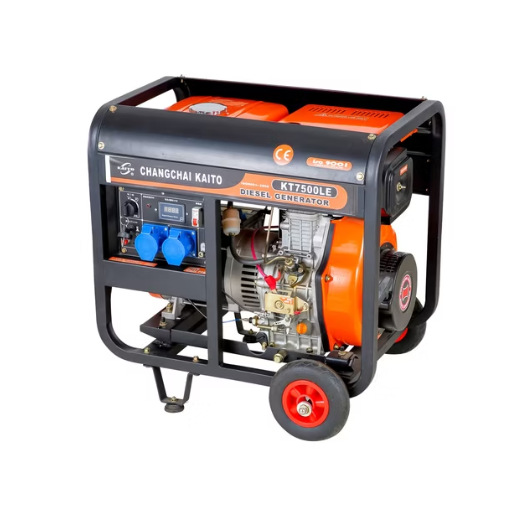
Regulatory and environmental considerations are critical in international exports and business operations. To avoid penalties and ensure excellent market access, companies should give due regard to global trade customs and regulations, including import and export laws, as well as product safety standards. To regulate climate change and support green business practices, various environmental policies may be implemented, including those that limit carbon emissions or require the sustainable sourcing of materials. Hence, companies should continually conduct compliance audits and invest in sustainable technologies to achieve conformity with these constantly changing requirements and to secure market success.
Emission Standards in China
Strict emission standards have been established for generators in China to meet environmental objectives and reduce air pollution. The latest regulation, known as “China Stage V” emission standards, which is similar to the European Stage V standard, has imposed maximum limits on the amount of particulate matter and nitrogen oxides released into the atmosphere. Manufacturers, therefore, need to resort to technology such as selective catalytic reduction (SCR) systems and diesel particulate filters (DPFs) to comply with these standards. For businesses considering importing or manufacturing generators into China, staying informed about the changes will not only help them avoid penalties and retain market access but also enable them to contribute to broader sustainable development goals.
Noise Regulations for Generators
Noise regulations for generators have been introduced to address noise pollution emanating from industries and machinery. These regulations vary from land to land; however, they primarily impose stringent limits on sound pollution or noise to prevent disturbances in both urban and rural areas. In many countries, for instance, permissible noise levels for portable generators are set at 60-70 dB(A) when measured at a certain prescribed distance, such as 23 feet. To comply with these standards, manufacturers often install additional mufflers or soundproofing enclosures on generators, which can further reduce noise emissions. Enforcement is at the level of the local or national environmental agency, which imposes weak penalties for non-compliance, thereby allowing industries to operate without harming the common good.
Sustainability Trends in Generator Production
The generator industry is now furthering its sustainability goals at the global level by introducing new technologies and practices that are environmentally favorable. Among other things, the generators are increasingly being hybridized for solar and wind energy. These hybrid generators significantly decrease carbon footprint and emissions of greenhouse gases. Meanwhile, other initiatives to develop cleaner alternatives for fuels, such as biodiesel and hydrogen, are now prominent, further reducing the environmental impact of generators. Manufacturers have reached another stage in their pursuit of energy efficiency through advanced engine concepts and digital monitoring systems that help optimize technical performance and minimize dynamic waste. These measures for sustainability are both regulatory-driven and cater to consumers seeking greener and more responsible products.
Practical Advice for Buying Generators in China
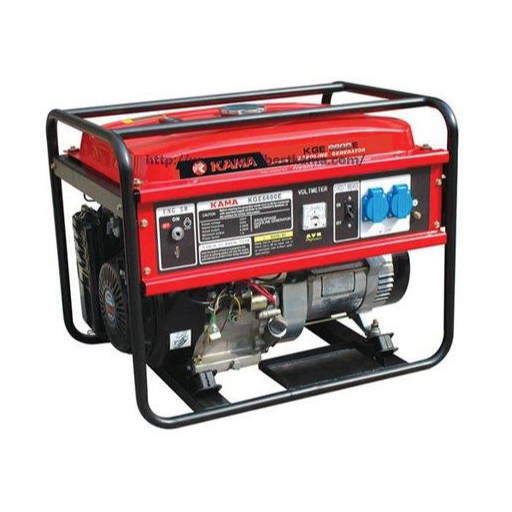
Here are some tips to keep in mind when buying generators from China:
- Evaluate Your Power Needs: Determine the power output required for your intended use, whether residential, commercial, or industrial, so that the generator will meet your needs.
- Choose Reliable Manufacturers: Look for reputable manufacturers or suppliers with a proven track record of quality and adherence to international standards.
- Verify Certifications: Your generator must fulfill specific safety and environmental standards, such as ISO or CE certification, to be considered reliable in terms of performance.
- Compare Pricing and Warranties: Check for competitive prices and also warranty offers. A warranty reflects the manufacturer’s confidence in their product.
- Inspect Quality: Look for sturdy materials, good assembly, and clear user documentation. If possible, conduct an upfront inspection or ask for product samples.
- Check After-Sales Support: Confirm the availability of technical support, spare parts, and servicing to maintain the longevity of your generator.
Determine Your Power Needs
The first important step to take before purchasing a generator is to determine exactly what your power requirements are. Write all the appliances and devices you plan to use, with their exact wattage requirements. Remember to consider both running watts, which are the power required to keep an appliance operating, and starting watts, which provide an additional power supply to start some appliances, such as refrigerators or air conditioners.
For example, a refrigerator may require approximately 700 running watts to operate, but could easily draw over 2,000 watts to start. Add them together to set your total power requirements. For typical homes, a generator with a power output of 5,000 to 7,500 watts can usually run the necessary items. However, for larger homes or businesses, you may require a generator with a capacity of 10,000 watts or more.
Besides, consider whether you want to power the entire building or just essential systems. This consideration affects in considerable measure the size and type of generator required, to the end of which you may settle on the most efficient and economic way.
Choose the Right Generator Type
Careful selection of a generator type involves considering the specific needs, price, and availability of fuel. In general, generators, inverters, and standbys are portable; their functional utility differs for each. Portable generators have various uses, including supplying a limited amount of power for a few essential tools at a construction site or running essential appliances during brief power outages. An inverter generator uses fuel efficiently and produces clean energy; hence, it is most suitable for delicate electronics, such as laptops or cell phones. A standby generator, however, is installed permanently and starts automatically in the event of a power outage, capable of supplying power to an entire house or commercial building. With data gathering and search trends, attention is placed upon eco-friendly and low-noise generators that meet environmental and urban living standards. When weighing these options alongside your power needs, you are more likely to make the correct choice that suits your specific situation.
Check Certifications and Standards
That is why one should check for certifications and standards when considering standby generators, to ensure that the product meets safety, performance, and environmental standards. According to recent search engine data, a significant number of users are seeking generators that hold certifications from organizations such as Underwriters Laboratories (UL) and the Environmental Protection Agency (EPA). These certifications ensure that the generator meets stringent safety regulations and emission standards, thereby providing consumers with peace of mind and reliability.
Consider After-Sales Support
In terms of after-sales services, I primarily consider warranty coverage, the responsiveness of customer service, and the availability of spare parts. I believe that they offer a guarantee of assistance if something goes wrong with the product, which in turn enhances its value and reliability.
Future Predictions for Generators in China
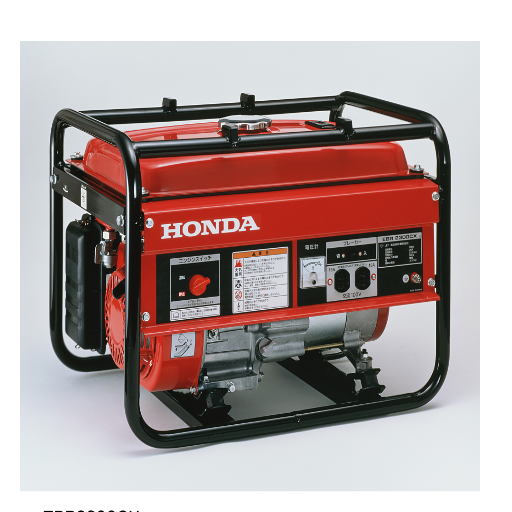
The demand for generators in China is growing steadily, driven by increasing energy needs, urbanization, and the country’s evolving industrial structure. Considering greener options, the generator industry is likely to witness development in cleaner and more energy-efficient technologies, such as natural gas and renewable-powered generator models. Also, stricter emission standards will be promoted under Government policies, thereby encouraging innovation and the adoption of greener solutions. Furthermore, the incorporation of innovative technologies, such as remote monitoring and automation, is expected to enhance generator functions and efficiencies, thereby addressing the needs of both residential and industrial users.
Market Growth Trajectory
Significant growth in the energy-efficient generators market is forecasted in the upcoming years. As the generator industry seeks to cater to the demand for sustainable energy, growing urbanization, and rising power-outage cases, it is expected to experience growth in both developed and developing economies. Current trends indicate that companies, regardless of their geographical location, are investing in compact generator technologies that are greener and thus meet global sustainability criteria. Market growth benefits further from increased awareness among consumers regarding energy conservation and subsidies offered by governments to promote greener technologies.
Technological Innovations on the Horizon
The generator industry is undergoing a period of significant change, with the introduction of advanced technologies bringing about dramatic transformations. One pivotal innovation involves the integration of innovative technologies in generators, enabling them to automatically monitor power needs and adjust their output to achieve optimal efficiency. These innovations often rely on the Internet of Things (IoT), which allows remote monitoring and control through either mobile apps or a cloud-based portal. There is ongoing hybrid generator development work to combine traditional fuel-based systems with renewable energy sources, such as solar panels, for a more sustainable and reliable energy solution. Developments in battery capacity storage, for instance, provide opportunities for improved energy storage options, increased energy storage capacities, and reduced energy consumption using fossil fuels. These technologies enhance performance and serve as a testament to the resilience required to meet the growing energy demands and environmental challenges.
Sustainability Focus and Regulations
China is steadily advancing its sustainability efforts, particularly concerning. Greenhouse gas reductions and the adoption of renewable energy are prime targets. The country places a great emphasis on clean energy sources, such as wind, solar, and hydropower, and is also at the forefront of solar panel production and deployment. Such ambitions are supported by regulatory frameworks, such as the Dual Carbon Goals, which aim to peak carbon emissions before 2030 and achieve carbon neutrality by 2060.
Still, problems persist in maintaining a balance between increasing energy requirements and industrial growth, while controlling pollution from coal-dependent areas. To further such desires, stricter regulations for emissions are in place, and subsidies for green technologies are extended to foster energy innovations. Ensuring compliance with international environmental standards, as well as emphasizing international cooperation, will now be crucial to maintaining a sustainable picture.
Global Influence of Chinese Manufacturers
Chinese manufacturers play a crucial role in the global economy, thanks to their large production capacity, cost-effective labor force, advanced technology, and dominance in virtually all industries. In the realm of power generation equipment, China has confirmed its top position in the production and export of various generators. Based on recent search trends, the search for “China generator” on different search engines has increased sharply, indicating a growing global interest in affordable yet reliable power solutions from Chinese manufacturers. This is an instance of China meeting global demand profitably through innovation and scale.
Reference Sources
Here are three professional and authoritative reference sources to verify the correctness of your article on “China Generator”:
- IEEE Xplore – Research on the Generation and Automatic Detection of Chinese Academic Texts
Description: This study encompasses the spectrum from advanced generation models and detection methods to building insight into innovative power generation methods. - ScienceDirect – An Easy and Efficient Power Generator with Ultrahigh Voltage
Description: The article discusses the development of an efficient power generator that can meet the lighting needs of high-wattage devices, providing an update on the current status of generator technology. - University of Science and Technology of China (USTC) – Fastest Real-Time Quantum Random Number Generator
Description: This research showcases cutting-edge developments in quantum generator technology and highlights China’s contributions to innovation.
Frequently Asked Questions (FAQs)
What is a diesel generator set?
A diesel generator set, often referred to as a genset, is a combination of a diesel engine and an alternator that produces electrical energy. These systems are widely used for standby power and are known for their reliability and efficiency, making them a top choice for both industrial and residential applications.
How does a Cummins generator perform?
Cummins generators are recognized for their robust performance and durability. Designed with high-efficiency diesel engines, these generators offer low fuel consumption while delivering reliable power. They are available in various capacities, including 20kva and 100kva, catering to diverse power needs.
What are the benefits of using a natural gas generator?
Natural gas generators provide several advantages, including lower emissions and reduced operating costs compared to diesel generators. They are particularly suitable for applications requiring a continuous power supply and are available in various configurations, such as natural gas generator sets or gas generator sets.
What is the diesel generator price?
The price of diesel generators varies widely based on capacity and manufacturer. For instance, a small 10 kW diesel generator can be purchased at a lower price point, while larger units, such as a 500 kVA diesel generator, can be significantly more expensive. It’s essential to consider the total cost of ownership, including maintenance and fuel consumption, when evaluating options.
Why choose a silent Cummins generator?
Silent Cummins generators are designed for noise reduction, making them ideal for residential areas or locations where noise pollution is a concern. These generators utilize advanced technology to minimize sound levels while maintaining high performance, enabling efficient operation without disturbing the surrounding environment.
What are the specifications for a 3-phase generator?
A 3-phase generator typically operates at a frequency of 50Hz and can range in capacity from small units, such as 20 kVA, to large industrial generators, such as 1000 kVA. They provide a stable power output, making them suitable for industrial applications that require a consistent and reliable energy supply.
How to Select the Proper Generator Manufacturer in China?
Selecting a reputable generator manufacturer in China involves evaluating product quality, customer reviews, and the quality of after-sales support. Look for manufacturers that offer a range of products, including diesel generator sets and natural gas generator sets, and ensure they adhere to international standards for reliability and safety.
What is the fuel consumption of a diesel power generator?
The fuel consumption of a diesel power generator can vary depending on its size and the load it is operating under. Generally, larger units, such as a 200kVA diesel generator, will consume more fuel than smaller units, like a 10kVA generator. It’s crucial to consider fuel efficiency when selecting a generator for cost-effectiveness.
What types of alternators are used in generator sets?
Generator sets typically utilize various types of alternators, including brushless alternators and those specifically designed for applications such as air-cooled or water-cooled systems. The choice of an alternator has a significant impact on the performance and efficiency of the generator, affecting its overall reliability and output quality.
